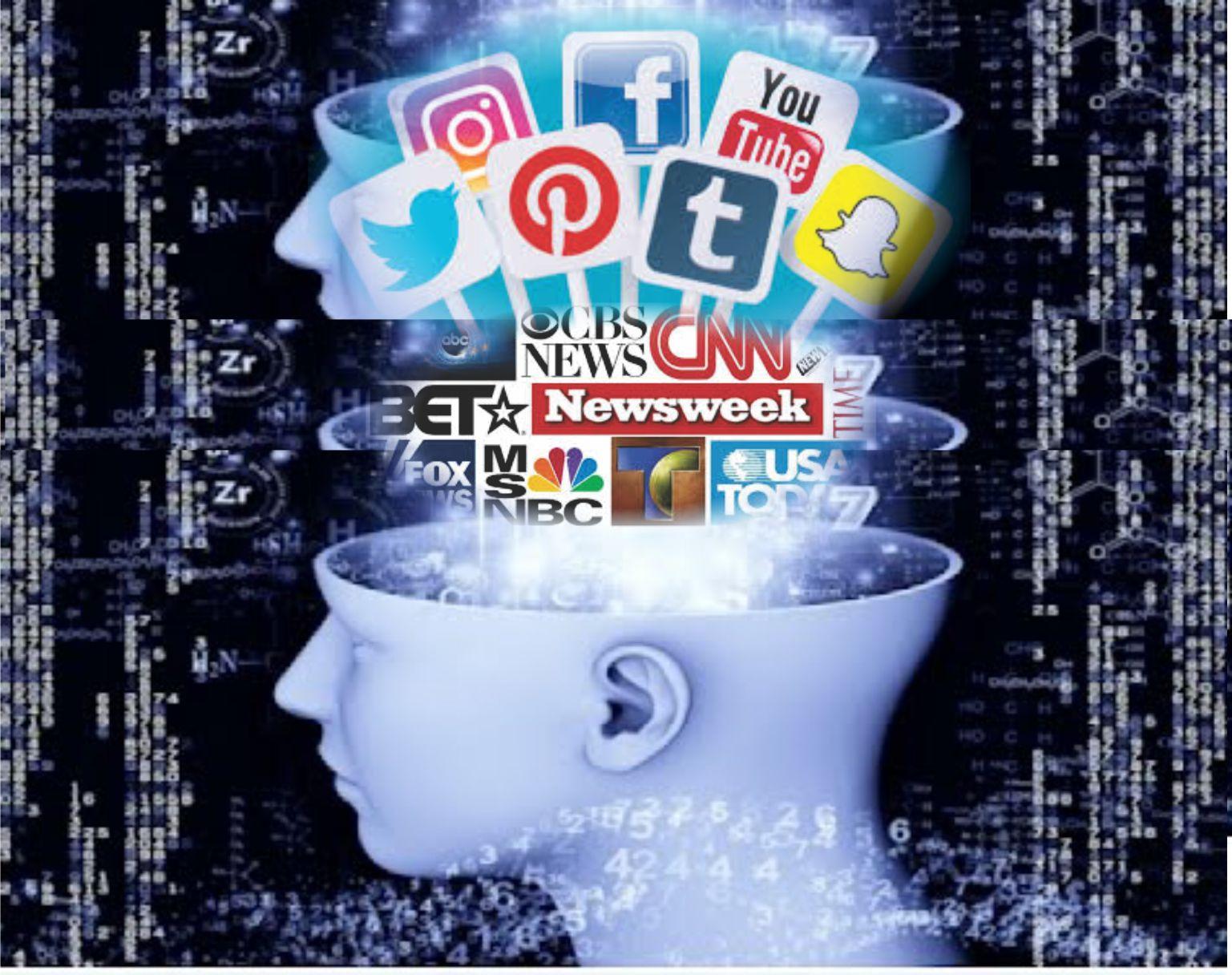
(This blog was first published in Medium)
I'm worried about how technology is changing us. I regularly use all kinds of digital devices and am wide-eyed and eager as each latest technical advancement becomes available. In my journalistic prime, I raced to Consumer Electronics Shows like a chocoholic to a fudge factory. But I'm concerned that computers, smartphones and IOTs are rewiring our brains and influencing our minds in ways that are incomprehensible. Are we losing our inborn abilities to think and discern? Is it affecting our organic process and changing how our brains function?
Our information age has morphed from its mild debut to an uncontrolled super force, a pulsating behemoth on steroids. Let's face it, we all spend long hours virtually addicted to emails, texts, tweets, posts and seduced by the Internet to research, shop, learn, be entertained or just explore. Technology impacts the way we relate to others, from coworkers and clients to friends and family...and even perfect strangers. It's dramatically changing how we receive--and perceive--news events. And there's a highly disturbing potential that it's used to brainwash us into mindlessly accepting diabolical realities.
Communications happen at the speed of light and sound causing you to rapidly deal with a massively vibrating universe of data. There's limited opportunity to stop and evaluate in this spinning swirl of news. How do you know what's true or fabricated by someone's delusional reality? An even bigger question is: could all these electronic distractions be changing how your brain processes data and how your mind believes what you're seeing or hearing?
There’s good news.
It's truly awe-inspiring to realize how massively your reach and connections have expanded. The playing field has been leveled and anyone can communicate in a single day to masses of people. At the flick of a button or voice activation, you align with others, answer inquiries, fill orders, chat with relatives in distant places, belong to groups, and find out what's happening in foreign lands in real time. As a strategic planner and personal development coach, I’m grateful and excited to have apps like SKYPE, ZOOM, online webinar platforms and social media to build a worldwide clientele. It's mind boggling that I can work from my hometown and spread my services and messages far beyond my local community. Each one of us is experiencing greater dynamic capacities and impressive potential. Great, right? Maybe! But at what cost? There are usually unintended consequences.
Unprecedented effects of social media and traditional media are cause for concern.
In advertising, messages are cleverly created to influence and tempt. But when you watch a commercial, you know it's marketing something from medications to drinks to cleaning goods. It's overt. Not so obvious is all that moves across your screen of awareness in today's social media universe. The dangerous barrage on your beliefs is slipping by without being noticed. In this new age of ceaseless digital chatter, I see major warning signs that technology is abused by those who take advantage of its power.
Media moguls who grasp the reality-TV mindset know how to control. They purposefully feed on vulnerabilities, uncertainties and fears. They stimulate emotions of anger, frustration, confusion, panic and more. As an expert in stress and anxiety, I can tell you that when you feel anxious or in danger, your built-in biological "fight or flight" mechanism kicks into gear. It activates the brain's amygdala to release stress hormones to help you perceive and survive threats to your well being. These primal reactions are meant for short bursts after which you're expected to bounce back. But with the ceaseless inflow, you're in a constant state of high alert. When this happens, the brain reacts by being forced into greater efficiency. Non-essential functions shut down such as digestion and the immune system. At the same time, chronic stress zaps the very neural pathways that connect to the prefrontal cortex which is your decision-making and reasoning place. Endless tweets, posts and news reports bombard and overwhelm your senses provoking and prolonging the stress response. Long-lasting exposure causes fear to become the norm and all hell breaks loose as your faculty to tell right from wrong or good from bad is corrupted. You become passively dysfunctional and easily controlled. Is this psychological warfare?
Every day, you witness interminable sound bites. These snippets storm your mind like mental noise and fragments of incessant thoughts. Between your job, paying bills, and managing your family, you don't get a free millisecond to judge their veracity. You're seduced by catchy headlines with wild concepts until finally you surrender to a twisted standard. To me this is particularly blatant in United States politics. Twitter's bizarre "tweet" battles are all too common. Exposed to a bare 140 characters in tweet after tweet, your psyche is hijacked.
Like Alice Through the Looking Glass, we're entering a distorted wonderland. It's changing behaviors and opinions with frightening speed and causing wide-spread divisiveness and interpersonal discord. The current use of technology is undermining our lives, independence and freedoms.
Both our physical and mental health suffer.
Reliance on digital devices is producing strange changes in personal communication skills. It’s affecting creativeness and the ability to concentrate or think abstractly. A Microsoft study researched brain activity using electroencephalograms to denote the common human attention span. The results showed the average span has fallen from 12 seconds in 2000 (when mobile devices were introduced) to eight seconds which is less than that of a goldfish. (Okay, I haven't a clue as to how one tests awareness in a fish!). But the fact is that psychologists and brain scientists are clear about how constant interruptions are changing your ability to stay focused or think deeply. Relentlessly plugged in, you’re immersed in a continual state of disturbances and the inundation is changing how your brain works.
According to another study, by-products of energy-sapping social media time may contribute to sadness, social detachment, reduced self-esteem, anxiety and depression. More and more evidence shows that constant use of social media is not good for mental health and affecting children as well as adults of all ages.
Memory is another casualty. You're unable to be attentive long enough to process and store information into long-term memory. Scientist Andi Horvath notes: “We are in an era where we have outsourced our memory to Google, GPS, calendar alerts and calculators.” Not surprisingly, one study emphasizes that millennials are even more absent-minded than seniors. At the office, performance is also affected. When employees look at social media during their work hours, productivity wanes.
Even electromagnetic fields (EMFs) are recognized as harmful. Are you aware that you're exposed to daily doses from your digital devices, WIFI, power lines and even home appliances? Recent scientific studies show a direct link between cell phone usage and brain tumors. You're most defenseless when at rest so if you sleep next to cell phones or smart watches or in the same room as a WIFI hub, you're likely endangering your health.
Furthermore, when electronic devices are used at night, they wreak havoc on natural circadian rhythms. Artificial brightness of the screens' blue light signals the brain that it’s still daytime and inhibits the release of melatonin (a hormone needed to promote sleep). Lack of sleep causes fatigue, confusion, poor decision-making and increases potential for obesity, diabetes and other conditions. Sleep deprivation also sets you up to be more vulnerable to mind games.
These observations and findings raise many questions. Will we continue to ignore all the online and digital corruption and manipulation? Will our bodies (and brains) adapt? Is this part of our biological evolution as we develop a new cellular makeup? Are we becoming more like artificial intelligence robots? I don't have answers but I'm a keen witness of human behavior and closely watching the public platforms and scientific evidence with rapt attention.
At the end of the day, technology is undeniably a monumental part of our culture. From my perspective, we must train in mindfulness so we are more aware of digital predators. As we continue merging into the high-energy pulsing world, we must stand together in holding on to integrity, values and basic supportive instincts. In my next blog, I'll share 7 solutions on how to decrease technology's wallop on brain health. Stay tuned!
/PS_Heather_V1.gif)
